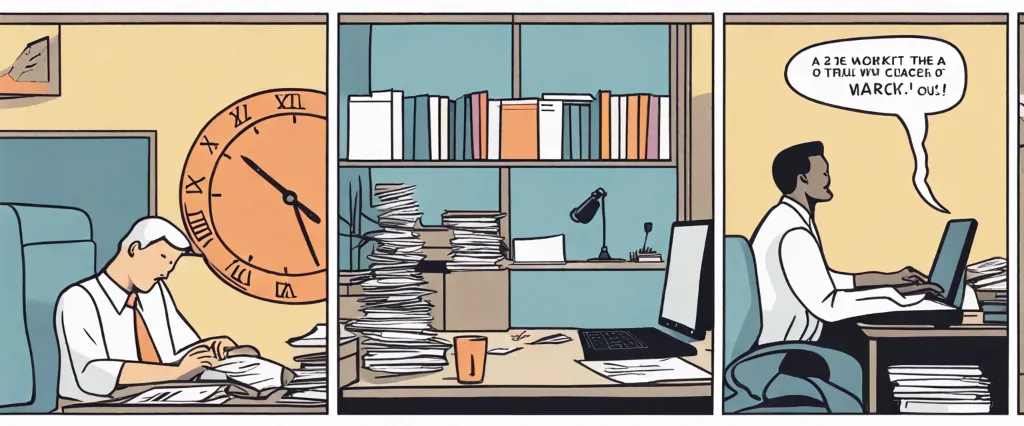
In a world where individuals strive to achieve success and find fulfillment in their professional and personal lives, the pursuit of effective strategies and personal development techniques has become crucial. With countless books offering advice and guidance, two prominent works have garnered attention from readers across the globe: “Now Discover Your Strengths” by Gallup and “The 4-Hour Workweek” by Timothy Ferriss.
While distinct in their approaches, both books delve into the realms of self-discovery and productivity, aiming to empower individuals to reach their potential and create a life they love. “Now Discover Your Strengths” delves into the philosophy that focusing on one’s strengths is the key to personal and professional success, while “The 4-Hour Workweek” challenges the conventional belief that we must endure long hours of work in pursuit of a prosperous life.
Gallup, a prominent research and consulting firm, takes center stage in “Now Discover Your Strengths,” authored by Marcus Buckingham and Donald O. Clifton. Emphasizing a strengths-based approach, the book argues that individuals should focus on identifying and harnessing their unique talents rather than attempting to fix their weaknesses. It introduces the concept of StrengthsFinder, a psychological assessment tool devised to help readers identify their core strengths and channel them to enhance their personal and professional lives.
On the other hand, Timothy Ferriss, a highly regarded entrepreneur and lifestyle guru, advocates for a radical shift in the way individuals perceive work-life balance in “The 4-Hour Workweek.” Ferriss challenges the traditional 40-hour workweek and pushes readers to question societal norms, encouraging them to escape the trap of endless work and embrace a life of freedom and fulfillment. With the promise of effective time management, outsourcing, and unconventional approaches to achieving financial independence, Ferriss offers his readers a blueprint to liberate themselves from the shackles of conventional work.
While these two books share the common goal of guiding readers towards a more fulfilling and successful life, their approaches differ significantly. “Now Discover Your Strengths” addresses the importance of self-awareness and emphasizes leveraging personal strengths, advocating for personal growth and fulfillment based on individual talents. Meanwhile, “The 4-Hour Workweek” invites readers to challenge societal norms, providing unconventional techniques and strategies to reclaim their time and redefine their relationship with work, ultimately seeking a life of freedom and adventure.
As we embark on an exploration of these two renowned works, we will delve further into the theories and practical applications presented within each book. By examining the authors’ arguments, methodologies, and distinctive perspectives, we aim to gain insights into the contrasting approaches of leveraging strengths versus revolutionizing work dynamics. Join us on this comparative journey as we uncover the potential each book holds in guiding individuals towards a life of self-discovery, productivity, and ultimate fulfillment.
Brief Summary of Two Books
Now Discover Your Strengths by Gallup
Now Discover Your Strengths by Gallup is a book that aims to help individuals identify and leverage their unique talents. Written by Marcus Buckingham and Donald O. Clifton, the book highlights the importance of focusing on strengths rather than weaknesses to achieve personal and professional success. The authors assert that each person possesses a set of core strengths that are innate and enduring. By identifying and developing these strengths, individuals can unlock their full potential and excel in their respective fields. The book provides practical advice, self-assessment tools, and real-life examples to guide readers in discovering their strengths and applying them effectively. Ultimately, Now Discover Your Strengths promotes a shift in mindset that encourages individuals to capitalize on their natural abilities rather than fixating on improving their weaknesses.
The 4Hour Workweek by Timothy Ferriss
“The 4-Hour Workweek” by Timothy Ferriss is a self-help book that challenges the traditional 9-to-5 work structure and offers a alternative approach to designing a fulfilling and flexible lifestyle. The book provides practical advice and techniques on how to escape the rat race, create your own rules, and find personal and financial freedom.
Ferriss begins by highlighting the concept of “lifestyle design,” encouraging readers to identify their goals and prioritize what truly brings them joy and fulfillment. He introduces the idea of outsourcing and delegating tasks, allowing individuals to focus primarily on what they excel at and enjoy doing. The book also explores the concept of “mini-retirements” where Ferriss encourages individuals to take extended breaks throughout their working lives, rather than waiting until retirement age to enjoy life.
Furthermore, Ferriss delves into strategies on automating and streamlining work processes. He emphasizes the importance of setting clear goals and deadlines, and applying the “80/20” principle which states that 80% of your results come from 20% of your efforts. This enables individuals to maximize productivity and achieve more in less time.
“The 4-Hour Workweek” also explores methods of generating passive income through entrepreneurship, online businesses, and investments. Ferriss provides step-by-step guidance on how to start and grow your own successful business with minimal time and effort. He shares his own experiences and offers valuable resources and tools to help aspiring entrepreneurs succeed.
Overall, the book encourages a shift in mindset and challenges the commonly accepted notion of work, promoting a more balanced and fulfilling approach to life. Whether you aspire to escape the traditional 9-to-5 grind, explore new opportunities, or simply achieve more while working less, “The 4-Hour Workweek” offers actionable strategies and insights to help you attain your goals.
Comparison between Two Books

Similarities in Career Development
Both “Now, Discover Your Strengths” by Gallup and “The 4-Hour Workweek” by Timothy Ferriss touch upon the subject of career development, albeit from different perspectives. Here are some similarities between the two books in regard to career development:
1. Focus on individual strengths: Both books emphasize the importance of identifying and leveraging one’s unique strengths to achieve professional success. “Now, Discover Your Strengths” encourages readers to identify their inherent talents and natural abilities to develop their career paths based on those strengths. Similarly, “The 4-Hour Workweek” suggests that individuals should identify their strengths and focus on activities that allow them to maximize their skills, talents, and passions.
2. Challenging traditional career models: Both books challenge conventional career models and advocate for unconventional approaches to work. “Now, Discover Your Strengths” argues that individuals should focus on developing their strengths rather than trying to fix their weaknesses, challenging the notion that everyone should strive for a well-rounded skillset. “The 4-Hour Workweek” challenges the traditional 9-to-5 work paradigm and encourages readers to explore alternative career paths, such as remote work, entrepreneurship, and lifestyle design.
3. Emphasis on self-awareness and reflection: Both books highlight the importance of self-awareness in career development. “Now, Discover Your Strengths” encourages readers to reflect on their past experiences and identify patterns of success and fulfillment to guide their career choices. “The 4-Hour Workweek” emphasizes self-reflection and introspection to understand personal values, priorities, and goals, which can then inform career decisions.
4. Pursuit of work-life balance and flexibility: Both books advocate for achieving work-life balance and finding flexibility in one’s career. “Now, Discover Your Strengths” suggests that individuals should align their career choices with their personal values and find opportunities that allow them to integrate work and life. “The 4-Hour Workweek” promotes the idea of designing one’s work around their desired lifestyle, enabling individuals to have more control over their time and pursue personal interests alongside their professional endeavors.
5. Focus on continuous learning and skill development: Both books highlight the importance of continuous learning and skill development for ongoing career growth. “Now, Discover Your Strengths” suggests that individuals should focus on developing their natural talents and investing in activities that allow them to further enhance those strengths. “The 4-Hour Workweek” encourages readers to constantly learn new skills and adapt to changing career landscapes to remain competitive and successful.
While “Now, Discover Your Strengths” primarily focuses on self-awareness and leveraging strengths within traditional career paths, “The 4-Hour Workweek” takes a more unconventional approach, challenging the status quo and advocating for alternative career paths. Nonetheless, both books share key similarities in their approach to career development, emphasizing individual strengths, self-awareness, work-life balance, and continuous learning.
Divergences in Career Development
Now Discover Your Strengths by Gallup and The 4-Hour Workweek by Timothy Ferriss are two popular books that offer different perspectives on career development. While both books provide insights and strategies for achieving success, they have diverging approaches when it comes to career development.
Now Discover Your Strengths by Gallup is based on the premise that focusing on developing one’s strengths rather than weaknesses leads to greater success and fulfillment in one’s career. The book encourages individuals to identify their unique talents and skills and leverage them in their work. It emphasizes the importance of self-awareness and understanding one’s strengths to excel in a particular role or field.
On the other hand, The 4-Hour Workweek by Timothy Ferriss takes a more unconventional approach to career development. The book challenges traditional norms and advocates for a lifestyle design that prioritizes freedom and flexibility. Ferriss suggests that individuals should strive to automate and outsource tasks in their work to achieve a shorter workweek and more time for personal pursuits. The central idea is to focus on efficiency, effectiveness, and maximizing output while minimizing input.
The divergence in these books lies in their fundamental philosophies on career development. Gallup’s book suggests that individuals should identify and cultivate their strengths to excel in their chosen career path. It emphasizes the importance of self-awareness, continuous improvement, and leveraging strengths for personal and professional growth.
In contrast, Ferriss’s book offers a more radical approach, advocating for a radical redesign of one’s career and lifestyle. It challenges the traditional notion of working long hours and instead focuses on strategies for working smarter, streamlining tasks, and eliminating unnecessary work.
While both books offer valuable insights, Now Discover Your Strengths provides a more conventional and introspective approach to career development, emphasizing self-awareness and leveraging one’s strengths. The 4-Hour Workweek, on the other hand, adopts a more unconventional and disruptive approach, encouraging individuals to challenge conventional norms and rethink their approach to work.
Ultimately, the choice between these two perspectives on career development depends on an individual’s goals, preferences, and willingness to challenge traditional notions of work.

Conclusion
Both books offer valuable insights and have their own merits, but it ultimately depends on your personal preferences and what you’re looking to gain from reading.
“Now Discover Your Strengths” by Gallup focuses on understanding and leveraging your unique strengths to improve performance and achieve success. It provides a framework for individuals and teams to identify their strengths and develop strategies for utilizing them effectively in various aspects of life. If you’re interested in personal development, self-awareness, and maximizing your potential based on your strengths, this book would be a worthwhile choice.
“The 4-Hour Workweek” by Timothy Ferriss offers a different perspective on productivity, work-life balance, and lifestyle design. Ferriss encourages readers to pursue a life of freedom, automation, and outsourcing to create more time for personal pursuits and adventures. The book presents strategies for escaping the conventional 9-5 workweek, building passive income streams, and creating a lifestyle centered on personal fulfillment. If you’re looking for inspiration and alternative approaches to work and life, this book may be more suitable for you.
Ultimately, the choice between the two books depends on your specific interests and goals. If you’re focused on understanding and optimizing your strengths, “Now Discover Your Strengths” is a great choice. On the other hand, if you’re looking for unconventional approaches to work and lifestyle design, “The 4-Hour Workweek” would be a better fit.


